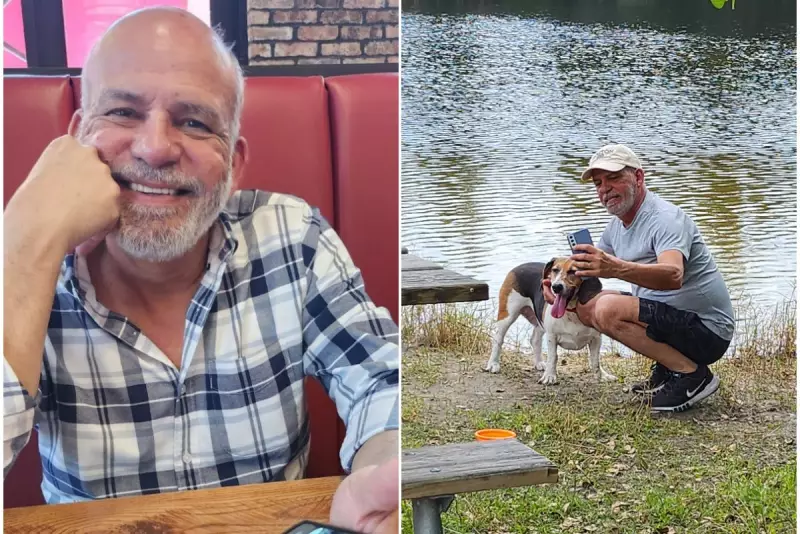
A Florida couple's American dream has turned into a nightmare after immigration authorities detained a 66-year-old Venezuelan man who had lived legally in the United States for over a decade.
From Political Persecution to American Suburbia
Ricardo Páez and his wife built what appeared to be an ordinary life in Pembroke Pines, a palm-tree lined suburb outside Miami. For ten years, Páez worked in distribution while his wife worked as an accountant. They cared for their nine-year-old adopted dog, Millie, and maintained a quiet existence far from the political turmoil they had fled in Venezuela.
Páez originally entered the United States legally on a ten-year visa after fleeing persecution in his home country. He had been politically active against Hugo Chávez's government and was even kidnapped at one point, though he managed to escape. The couple initially moved to Mexico in 2010 before settling in Florida in 2012.
The Legal Limbo of Withholding of Removal
When their visas were due to expire in 2015, the couple applied for asylum, but their claims were denied. However, in 2014, an immigration judge had granted them both withholding of removal orders, determining it was unsafe for them to return to Venezuela.
This legal status offered protection but came with significant limitations. It provided no path to permanent residency and required annual check-ins with Immigration and Customs Enforcement (ICE). Most significantly, it authorised deportation to a third country rather than just the home nation.
For years, Páez complied with all requirements, attending every ICE appointment and maintaining a clean record. His brother-in-law, Fernando Mesquida, emphasised that Páez never even received a parking ticket during his time in the United States.
The Halloween Detention That Changed Everything
The family's stable existence shattered on October 31, 2025, when Páez attended what should have been a routine ICE check-in. After presenting his documents, including his withholding of removal order, he was told his paperwork was no longer valid.
Hours later, he was handcuffed and transported to the Krome Detention Center, a facility on the edge of the Florida Everglades that has faced numerous accusations of overcrowding and substandard conditions.
Weeks later, Páez remains detained in what his family describes as legal limbo. The situation took a dangerous turn on November 10 when he was hospitalised after blacking out. His family believes the stress of detention exacerbated his existing heart condition and emphysema.
His wife, who asked not to be named, expressed her terror: "If something happens to his health, or if he is deported to I don't know what country - I feel so terrified." The couple have been married for forty years.
A Shifting Immigration Landscape
Páez's case highlights a significant change in how US immigration authorities are treating individuals with withholding of removal status. Under the Trump administration, ICE has begun more aggressively targeting such individuals for removal to third countries.
In February 2025, ICE issued a directive encouraging officers to evaluate immigrants with withholding removal orders to determine viability of removal to third countries. The administration has since negotiated deportation agreements with several nations, including Panama, Costa Rica and El Salvador.
A Department of Homeland Security spokesperson stated: "We are applying the law as written. If a judge finds an illegal alien has no right to be in this country, we are going to remove them. Period." The spokesperson added that Páez had overstayed his visa and had a final order of removal from a federal judge.
Meanwhile, Páez's family continues fighting for his release, contacting attorneys, state officials and even writing to President Trump himself. But as days turn into weeks, their hope diminishes alongside Páez's health.
Mesquida summarised the family's frustration: "We're talking about a 66-year-old with emphysema. We know that it could be a mistake, but this mistake is taking too long."





